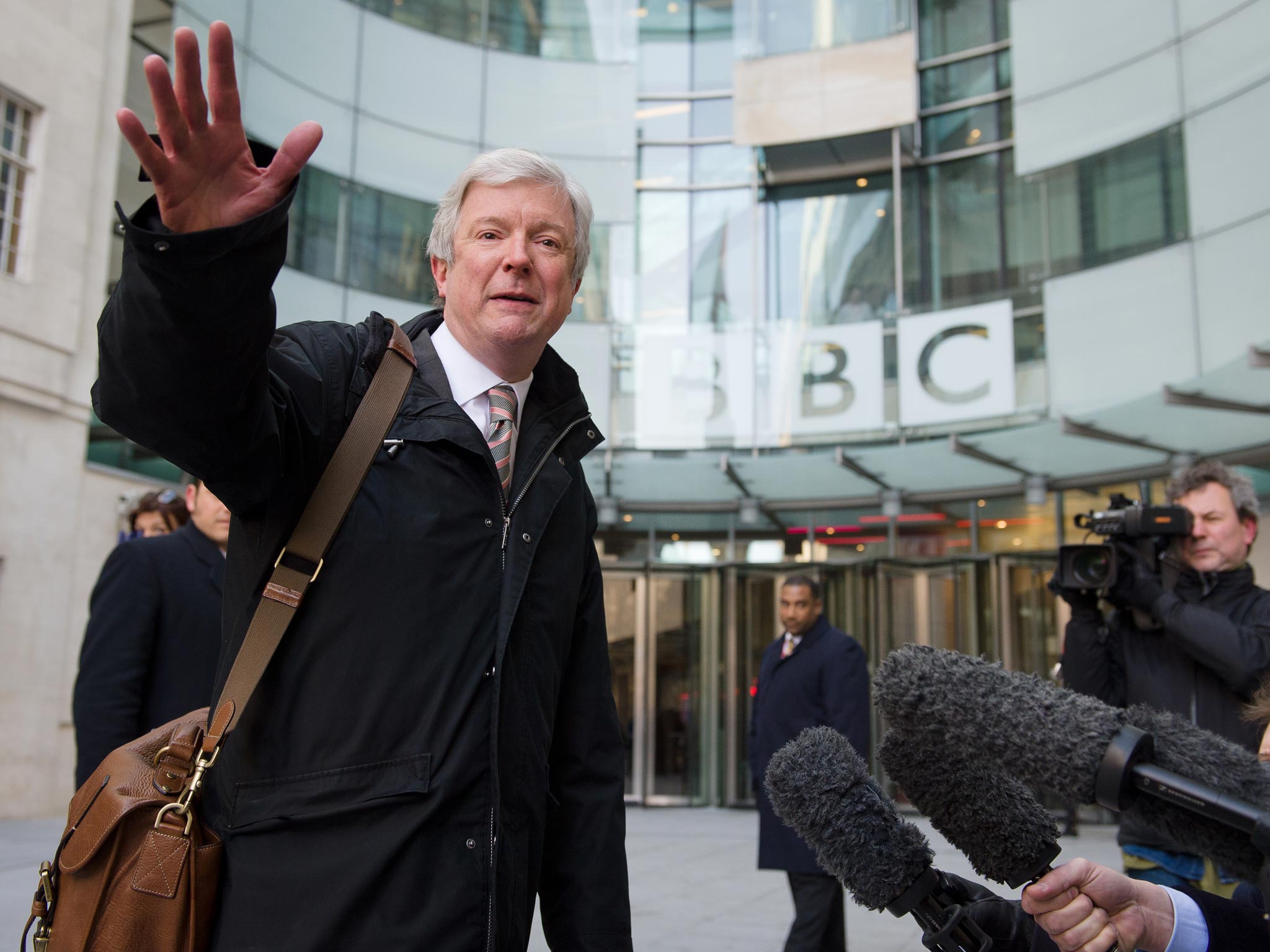Tony Hall: The BBC World Service's funding may change – standards will not
The BBC has a clear set of values wherever it operates – impartiality, accuracy, diversity of opinion and fairness

When Nelson Mandela died, some of the most moving words I heard were spoken by a BBC World Service correspondent. They were not the words of a foreign correspondent on a routine tour of duty. They were rooted in her life.
Nomsa Maseko told BBC1 viewers she was 10 years old when Mandela finally left prison.
“It was a Sunday and I had been sent to the shops, and when I came back I found my mother staring at the television and I said to her, ‘Why are you crying?’ And she held me and said ‘This is the day you will never forget for the rest of your life. You are now free!’ I am constantly reminded of that each time I see the beauty of South Africa – and all its flaws.”
Our World Service correspondents bring a rare insight into the lives of their own countries for audiences here and around the globe.
In Damascus, Syria, correspondent Lina Sinjab has bravely charted the revolution: “It has become a luxury to go back home alive. Everyone in the city knows that at any minute they might be dead.”
When the World Service started broadcasting in 1932, John Reith warned listeners to keep their expectations low. Instead, it far exceeded them. In 1999, the United Nations Secretary-General Kofi Annan called it “perhaps Britain’s greatest gift to the world this century”.
The World Service is the BBC: our reputation is founded on it. But change is now upon us. From April, the World Service budget of £245m will be paid by the licence fee, not by Foreign Office grant-in-aid as it has been for decades.
We inherit the World Service at a particularly testing time. We are tasked with cutting £700m across the BBC by 2017, including more than £60m from BBC News. Even against that background, I am absolutely committed to seeing the World Service prosper. And beyond just protecting the World Service’s budget, I want to look to invest more to fund its digital future so that we can reach half a billion people around the world by 2022.
Over the past 80 years, we have built a global news service that is respected and relied upon by a quarter of a billion people. The World Service has now been given permission to seek extra funds from both commercial and non-commercial sources, where appropriate, by the BBC Trust.
This is an economic necessity, but let me stress – its future is safe in our hands. Advertisements will never get in the way of our output nor be a dominant part of it. Commercial activity will remain a small part of our funding and there will be no advertising in the UK. The BBC’s reputation for providing impartial and independent news will always take precedence.
A growing number of competitors take a different approach. Some tilt their editorial compass to suit the countries in which they operate. Some receive huge governmental funding and tie their editorial mission to foreign policy demands.
The Chinese government reportedly invests billions of dollars in CCTV, whose stated purpose is “to voice a Chinese perspective on world affairs and to break the Western voice’s monopoly on the news”. Al Jazeera and RT (formerly Russia Today) are said to receive hundreds of millions of dollars from their governments.
In contrast, the BBC has a clear set of values and a common ethos wherever it operates in the world – impartiality, accuracy, diversity of opinion and fairness. It is the best of Britain.
The BBC World Service has survived and thrived because of its capacity for change, while remaining true to its values. If we hold on to these guiding principles we can be even more ambitious in the future, whatever the challenges ahead.
Join our commenting forum
Join thought-provoking conversations, follow other Independent readers and see their replies
Comments
Bookmark popover
Removed from bookmarks